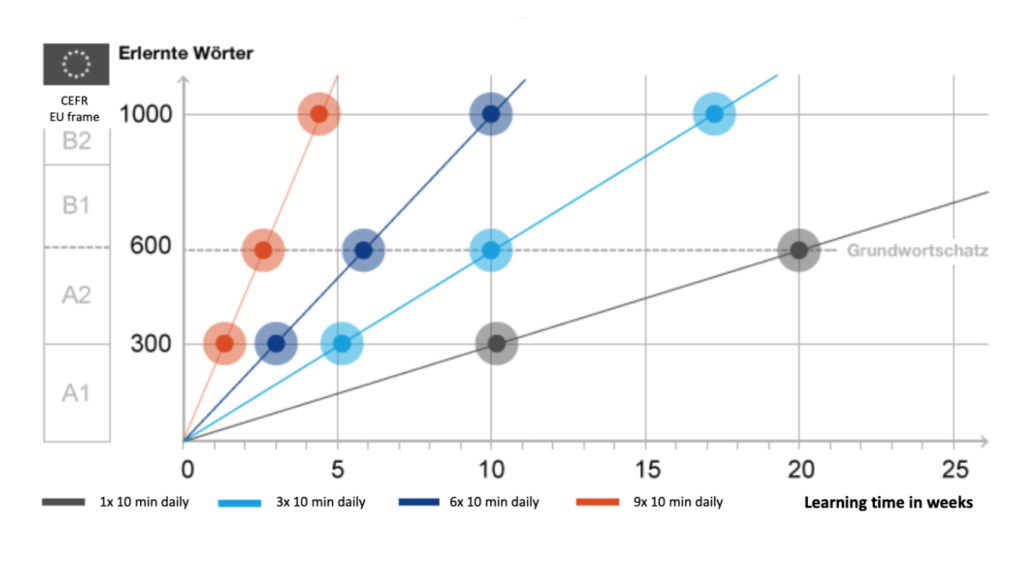On vacation, you are a hero even with basic knowledge!
Even a few phrases in the local language will bring you numerous advantages. Just by simply communicating with locals, you will experience your vacation much more intensively than without language skills!
Unique experiences thanks to language skills
My travel highlights (almost always) came from talking to locals. Just the other day on vacation in Northern Ireland, thanks to our good English skills, we got to speak to a pub musician who told us about a picturesque cliff. There we met a lady who rented out her parking space as the starting point of a beautiful cliff hike. While chatting with her, we learned that a key scene from the series Game of Thrones (I’m a huge fan!) was filmed right there on the cliff. The lady told us about her meetings with the main actors, what personality she was surprised by, how the filming was going on… It was fascinating! I’m delighted we went there, and I understood (even if I didn’t know every single word) the locals so well. It was the highlight of my trip!

Would you also like to EXPERIENCE MORE? Today we present three ways to prepare for your next vacation abroad and immerse yourself in the foreign language:
1. Prepare key phrases:
Master key foreign language phrases before you leave.
2. Learn everyday communication ahead of time:
Prepare a few weeks ahead of time if you want to converse with residents and hosts.
3. Practice speaking on vacation itself:
Get the most out of your trip by practicing speaking right where you are and improve quickly.

1. Prepare the key phrases
Master foreign language key phrases before you leave.
A few key foreign language phrases will help you get by well while traveling. Start by acting out and writing down various situations you might run into while traveling. Now get the Internet to help you translate the phrases into a foreign language. Some websites have even summarized essential expressions for your vacation.
By the way, most travel guides also contain helpful phrases in the local language, usually found on the last pages.
If you don’t just want to learn bland phrases by heart but really understand the foreign language, then additionally de-code the required terms yourself. De-coding means “to decipher.” The tool for this is our native language because we know it inside out. By translating a foreign-language text word-for-word into our native language, we learn to understand the foreign language. In this way, we learn in a simple way:
- the meaning of individual words
- the use of words in the context of a sentence
- the sentence structure of the foreign language
- grammar, such as conjugations, tenses, and prepositions
- differences and similarities to our native language
This is what a simple de-coded German sentence looks like:

Would you like to learn more about de-coding? What is the best way to de-code? And how to de-code on paper or digitally?
2. Learn everyday communication in advance
Prepare a few weeks in advance if you want to talk to residents and hosts.
Do you want to be able to do more than “I don’t speak your language” and “We’d like to check-in, please”? Then we recommend a crash course – you’ll be most flexible in terms of time here with a MOVIE© language course for at home and on the road (with matching mobile app). With the Brain-Friendly language courses, you learn the basics of your desired language effortlessly and brain-suitable – just like your native language back then.
What is brain-friendly?
Learning is effortless when the brain sees a purpose in it. This aspect is precisely what Brain-Friendly builds on with the integrated Birkenbihl Approach. With the MOVIE© language courses, you do not strictly learn vocabulary and grammar but acquire the language by using brain skills, intuition, and your feeling for language. The primary tool for this is de-coding, which we have already described in more detail under point 1. www.brain-friendly.com.
How much should you learn for vacation?
About 300 words (CEFR level: A1) is usually enough for a vacation. You can form simple sentences and talk to people in restaurants, hotels, and while shopping with this amount. If you study 10 minutes a day, you will reach this vocabulary goal in 10 weeks! Of course, the more you practice, the faster you will reach your goal.
You can use this graphic as a guide:

If you want even more, you can aim for the basic vocabulary. This is around 600 words (CEFR level: A2). Most daily newspapers even manage with less! So if you understand a total of 600 unique words, you can easily follow an everyday conversation in any vacation country (be it Italy, France, Spain, or China).
How much time should I spend each day?
We recommend that you learn in 10-minute units. During this time, the brain can fully concentrate on the language and absorbs new information best. After 10 minutes, you should switch your activity – for example, read Italian for 10 minutes, listen to Italian radio for 10 minutes, or write Italian for 10 minutes, tend your garden for 10 minutes. After each learning session, your brain continues learning for about 10 minutes. This method will double your learning efficiency!
I only have 4 weeks until my vacation – what can I achieve until then?
If you study one to three times a day (in 10-minute units), you will reach the travel vocabulary of 300 words in just 5 weeks. The more learning units you do per day, the faster you will progress. With 9 units a day, you can even reach the travel vocabulary in just one week! (See the chart above to determine the estimated study time).
3. Practice speaking on vacation itself
Get the most out of your trip by practicing speaking on the spot to improve quickly.
From the security guard at the airport to the clerk at your hotel, you’ll be communicating with various people in the local language during your trip. Think of this as an opportunity to use and improve your language skills! Only practice will make you better – and after the third sentence, even the initial shyness will fade. Residents will be pleased with your efforts – no one will smile at you when you make mistakes! Eventually, you won’t make any more, but you need to make an effort and start speaking to do so.
Excellent preparation for speaking is background listening. Let foreign language texts (preferably the audio files of the brain-friendly courses, because you already understand these texts) run quietly in the background. Don’t listen intently, but go about your daily life instead: you can work, drive, or even sleep. Your brain independently builds up the neural pathways that are necessary for perfect speaking of a foreign language. In this way, you get used to the new sounds, the speech rhythm, and the speech melody. You delegate the learning work to your subconscious. This method costs no time and prepares you ideally for speaking on vacation.

